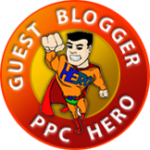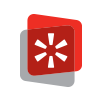 |
This week we are featuring guest articles from our PPC Hero allies! We requested submissions from our readers and we received excellent responses from some great PPC bloggers! The PPC Hero team will return to our regularly scheduled articles next week. Enjoy!
I only recently realized that Google’s conversion optimizer had lowered its requirement on the search network to 30 conversions in 30 days, so I wanted to recap when, how, and why you should use it. It’s a fantastic tool that can really increase a campaign’s performance, but it has to be used the right way. You just have to understand how it thinks.
Google’s conversion optimizer can indeed be a scary thing. As part of a cross media agency, I know the impact visibility can have on a campaign’s performance – having a bot control your bids and ad positions is a tough decision to make which is why I want to help you try make it.
When to use the conversion optimizer:
– an ROI focused campaign
– your objective is Leads/SignUps
Branding and Visibility are not included here. That’s because the Conversion Optimizer adjusts your position every search to secure your target objective. It’s therefore not a reliable source of visibility-generation.
How it works:
First, you choose a target CPA: How much do you want the conversion for. Google will recommend an amount based on your account historical, I suggest sticking close to that and lowering it gradually over the weeks. If you have realistic objectives, you and the conversion optimizer will get along just fine.
The conversion optimizer will look at several things to decide where to bid, these include: your budget, your target, your CTR, your Conversion Rate, your keyword to ad performance, the weekday’s average performance, and if the user is logged into Google, his geographic and demographic. That’s a lot of factors.
Every time there is a search on keywords and you are eligible to appear, the Conversion Optimizer will adjust the bid on your keyword to place your ad wherever it deems the keyword will most likely convert or respect your target CPA. It will do that for every single keyword, every single search.
And you can see it work! If you turn it on in the morning and leave it on for a few hours, you can literally see ad groups/keywords going down in position. That’s because the system doesn’t think they can make the conversion, so it lowers the bid drastically.
I am still testing this, but it is safe to assume that once you have accumulated enough data you can then optimize by position. If you see that a certain keyword or ad group has been consistently lowered and you are sure it’s not profitable (have you tried a different ad?) then pause the ad group, because it will only lower your CTR and therefore Quality Score.
Things to know about the conversion optimizer:
– Do not use in campaigns that have ‘branded ad groups.’ Put those in a separate campaign, or they will skew your results by misdirecting the tool towards conversions you would have already acquired.
– Adding new ads is something a little tricky. Because the system doesn’t have any information on your ad’s performance, it will display a little randomly, and this can affect data analysis.
Finally use, the Conversion Optimizer on mature campaigns with some historical, and just let it work. Don’t change the campaign too much. You can test new ads and pause keywords and ad groups, but monitor the relationship between modifications to your campaign and performance closely.
Furthermore, I was also told by a Google rep that you could activate the conversion optimizer on Content Network campaigns when you had 50 conversions in 30 days, but that sounds a little hard due to the nature of the content network: your ad can appear on a brand new page, so how will the system assess that page’s conversion rate?
Ready to turn it on? Just go to your campaign settings page and you will be able to change your bidding tactic and choose your target CPA.
Guest Blogger Bio: .hmmessage P { margin:0px; padding:0px } body.hmmessage { font-size: 10pt; font-family:Verdana } Eloi Casali is a bilingual Search Engine Marketing Consultant for Performics, Publicis Groupe’s Performance Marketing Agency. PPC enthusiasth from the start, Eloi worked for SiteVisibility as a Paid Search Consultant and resident blogger before going back to his native city of Paris to become part of Performics. Performics was bought from Google by Publicis in August 2008 and has since then become the 360° performance marketing agency in which Eloi manages Paid Search campaigns.




